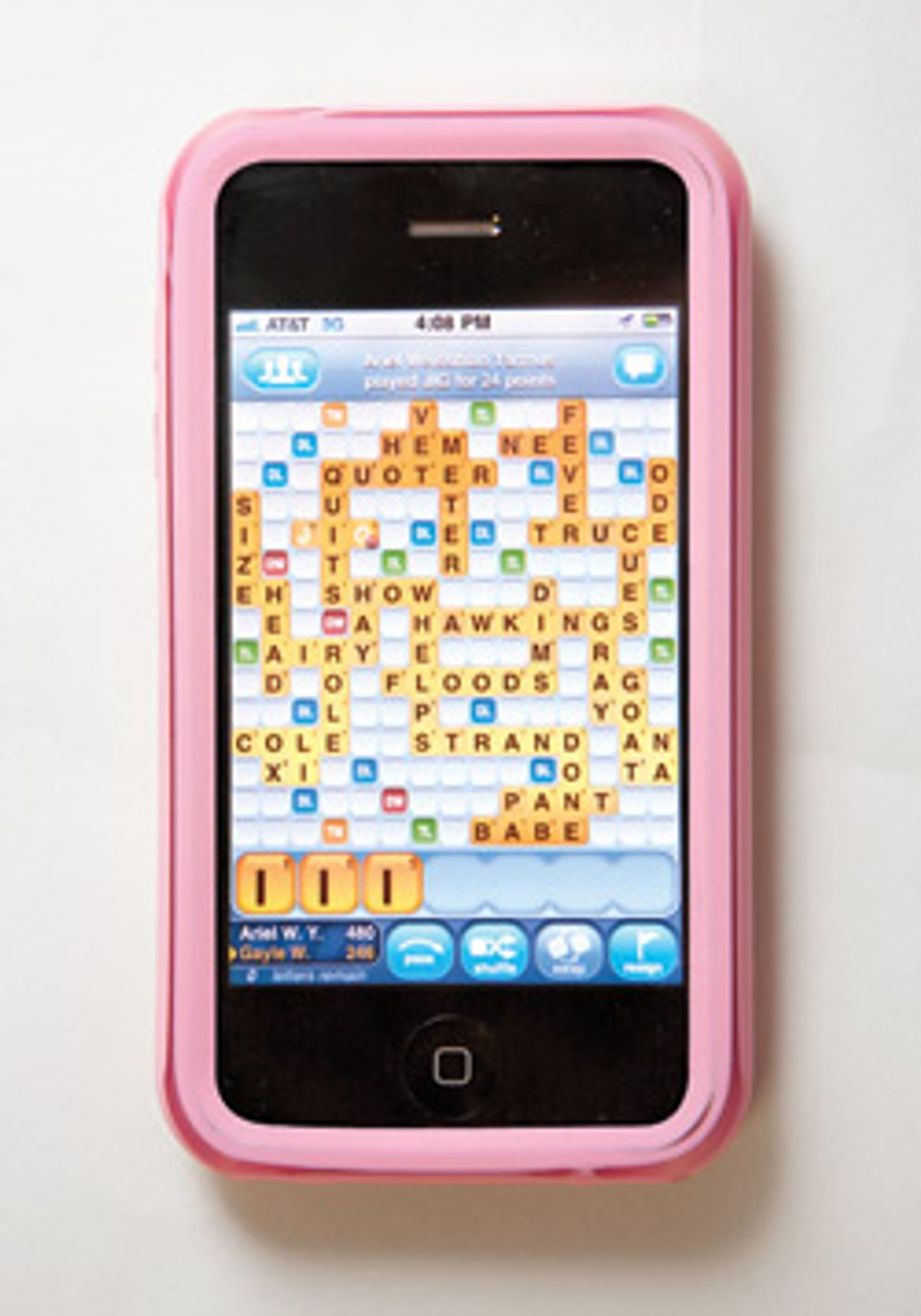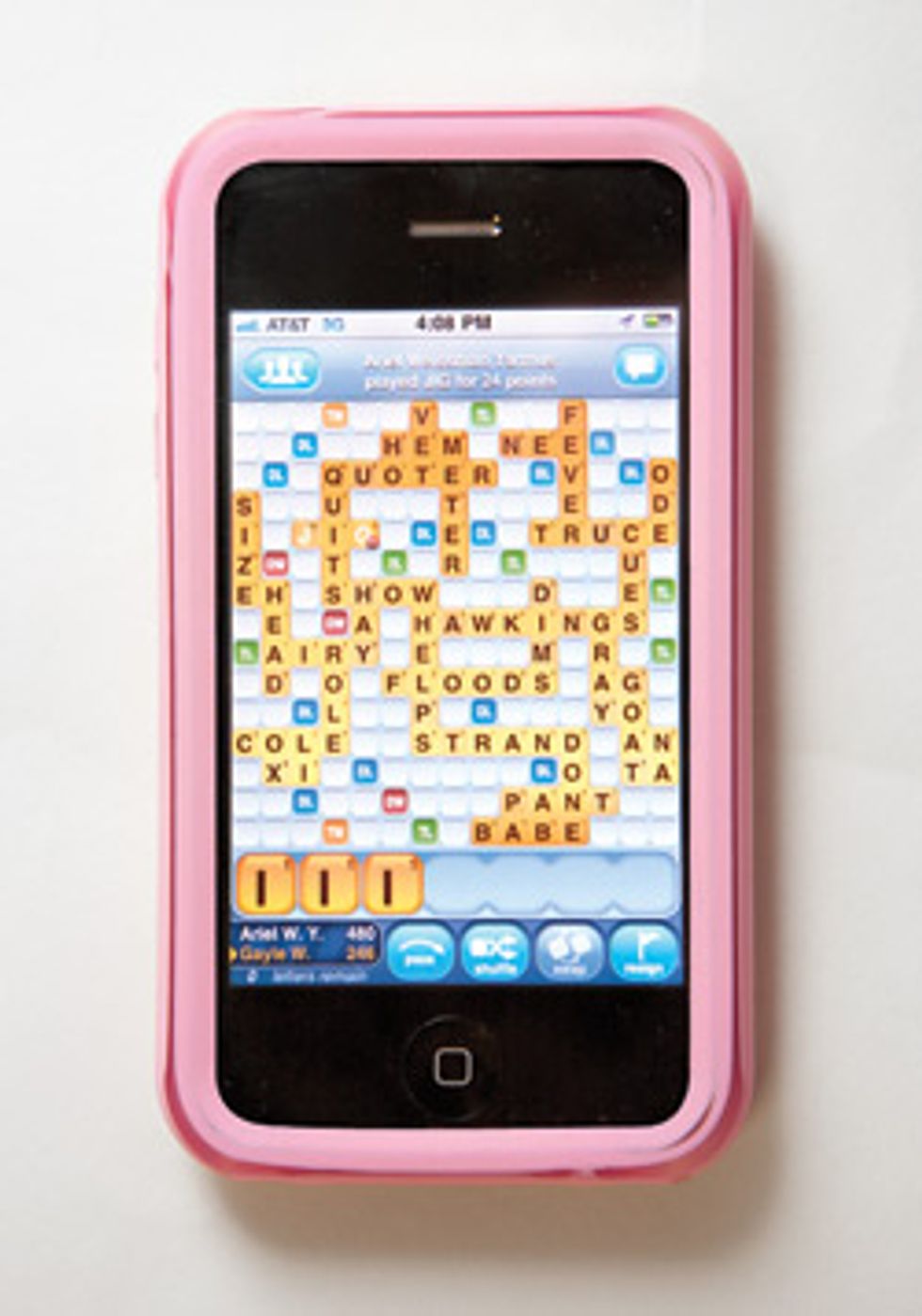If you know the name Zynga, chances are it's in the context of the company's blockbuster Facebook game, FarmVille. But even as Zynga spreads its roots through the fertile soil of social networks, it's also decided to take on the next big trend in computing—mobility. In 2010 it acquired NewToy and its online game, Words with Friends, an update of the venerable board game Scrabble.
"When the iPhone came out, we saw this game platform that you carry around with you all the time," says Paul Bettner, who along with his brother David helped design the new game. The Bettners and their design and engineer partners, particularly Kevin Holme and Shawn Lohstroh, had stumbled upon a new world of casual gaming.
"We had no idea that it'd catch on like it did. It was just something that we wanted to play," Bettner recalls. "I wanted something I can pull out and play for a few minutes and then put it back in my pocket."
A billion supermarket-queue game plays later, Zynga is sitting on a Words with Friends empire that has, in three years, become as much of a global social phenomenon as the 64-year-old game it's loosely based upon.
Like Scrabble, WwF is a crossword puzzle–like game that rewards verbal tinkerers and linguistic esotericists.
But WwF is not a copy of Scrabble. Holme combed Internet databases to find the most common letters in everyday English usage. "He came up with a percentage for each of the 26 letters," Bettner says. "And that was just the starting point."
Holme then set a designer's eye on reinventing a style of game that originated when veterans were still returning home from World War II. He reshaped the board, added four tiles, and changed the values and distribution of the letters.
"One of the goals we had in designing our letter distribution was to give players letters that would allow them to form words much more easily than in other word games," Holme said via e-mail. "In WwF, we put four Hs into the bag and set their value to 3—a big difference from Scrabble, which uses two Hs worth 4 points."
In other words, he amplified the number of what Bettner calls the game's "explosive moments."
"Creating a fun social game, especially for a very broad audience, is about finding the right balance between randomness and skill," Bettner says. "If there's just that right amount of randomness in the game, then you feel like, I'm pretty far behind, but I might just get the perfect combination of letters to spell a word with a J in it."
Andrew Thomas, a visiting assistant professor of statistics at Carnegie Mellon University, has run millions of simulations of WwF and Scrabble games in software. The simulations show how each letter either adds to or detracts from a player's average game score. Thomas sees the letter J, which WwF values at 10 points versus Scrabble's 8, as an example of how WwF creates explosive game play. (For more on Thomas's simulations, see "Data Mining Scrabble,".)
"J is almost a break-even tile in standard Scrabble," he says. "On average, you're no better or worse getting it on your rack. In WwF, it's extremely advantageous to have the J—to the tune of 6 final score points," Thomas says.
The original Scrabble game has finally migrated from its "Father Knows Best" origins—when families had the time and inclination for a night of board games—to smartphones. We'll see how well it competes with a game that was designed from the ground up to be played at bus stops as well as in living rooms.
This article originally appeared in print as "Not Your Parents’ Scrabble."

